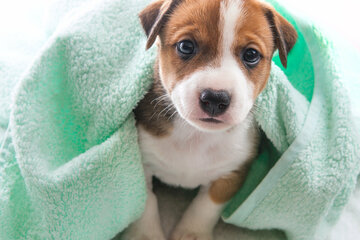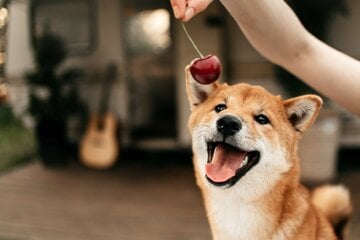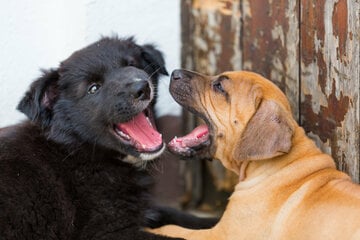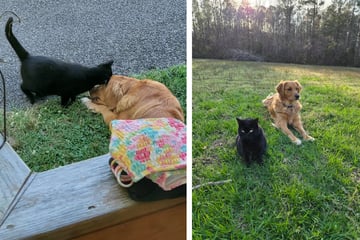Why do dogs eat dirt and should you be worried about it?
Dogs like to get down and dirty. Whether it's splashing around in puddles, or sticking their noses in everything they find, it's fair to say that they can get a bit icky. But when it comes to the bizarre tendency to gobble up dirt like it's a four-course meal, some owners will get worried. But is it really a problem? And why do dogs eat dirt anyway?
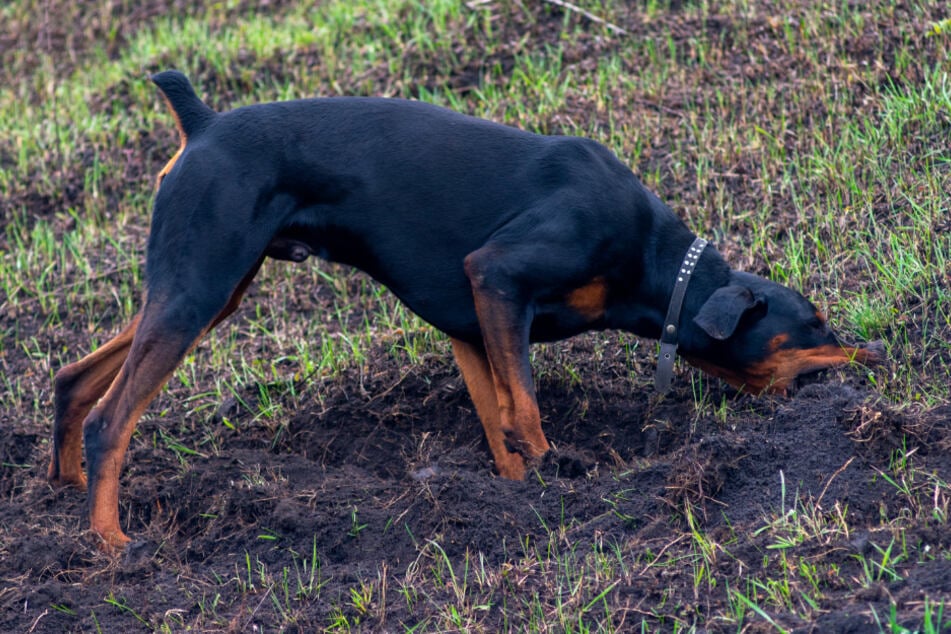
It might seem weird, but according to your dog, that vegetable patch potting mix, the soil from your flower pot, and that forest dirt, all have one thing in common – they're irresistibly delicious!
You may have noticed it occasionally chowing down on some tasty soil and asked yourself a whole host of questions.
So why do dogs eat dirt sometimes? Does it really just taste good to them, or is there another reason for their snacking? And should a dog owner stop their pooch from eating up too much of the garden?
In this dog guide, we will take you through why dogs eat dirt, what it means, and what you should do if your dog starts doing it more regularly.
Let's dive in!
Why is my dog eating dirt?
No one really knows why our canine companions like to eat mud, dirt, and other earthly substances. It seems a little strange to us and, despite many observations and studies, there is one explanation given by experts as to why this behavior is so common.
Here is a selection of possible reasons why dogs eat dirt:
- Joy
- Curiosity (especially in puppies)
- Boredom
- Stress
- Lack of a nutritious diet
- Unwanted food changes
- Congenital behavior
- Digestive problems
- Health problems in the mouth or teeth
This is not an exhaustive list. When it comes to medical issues, however, dental problems are the most likely. In this example, a dog may lick its mouth excessively, chew things for seemingly no reason, and have pale or cloudy gums on top of taking a liking to dirt.
If your dog has been eating soil a little too often, it is likely a good idea to take it to the vet. It could be eating soil due to some kind of illness or deficiency.
Please note: It could be possible that the soil contains dangerous foreign bodies, poisonous fungi or insects, or even fertilizers that could hurt your dog. As a result, it is good to try and limit this behavior and, if there is a suspicion of an allergic reaction or poisoning from eating soil, you should head to the veterinarian immediately.
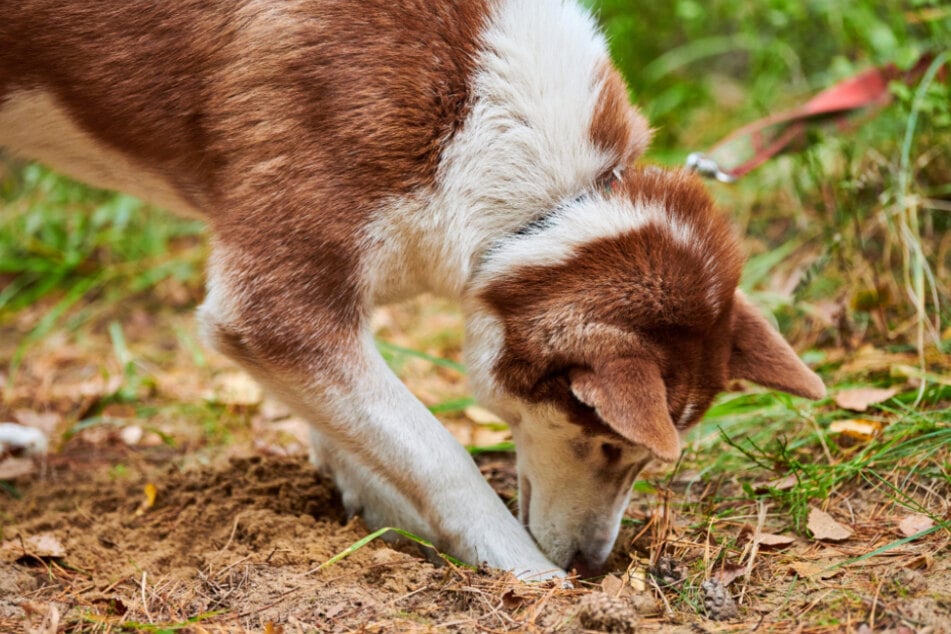
Why do dogs eat grass and mud too?
Grass and mud also seems to be a favorite snack for our favorite pooches. Much like with their habit of eating dirt, there is very little solid information to suggest why they might do this, but there are more than a couple theories out there.
What are a few reasons for dogs being fond of grass and mud?
- They're self-medicating as they are feeling nauseous and sick.
- They might actually just really like the taste of it. Seems weird, but hey, dogs can be weird.
- Maybe we are wrong about what dog's need from a dietary point of view. Grass and the minerals found in mud could be a necessary part of their diet that is missing from the food we give them.
- Your doggo might be a little bored and is having a momentary munch to spell out the time whilst they wait for you.
- Thirst could also be an explanation and the dog's actually just looking for any liquid.
Dogs eat rocks sometimes as well – and that's definitely not good for them, so watch out for that.
Is it good for my dog to eat soil?
There's no final word on whether chowing down on some dirt is actually good for your dog. Until we fully understand the "reasoning" behind the behavior, it's impossible to say with certainty what the effects are.
That being said, dogs that eat dirt, mud, and grass can all pick up all sorts of nasty diseases. Contaminated dirt is not good for the dog's digestive system either, and can damage the teeth and throat, even posing quite a serious choking risk if they accidentally swallow rocks or bigger lumps. In other words, there's an argument in favor of erring on the side of caution and putting a stop to that behavior unless you know exactly what's in the ground.
Whatever the possible benefits of eating dirt – after all, they must do it for some reason – they don't necessarily outweigh the risks.
When to stop a dog from eating dirt
There are a couple of questions that you should ask yourself if you are unsure whether to stop your dog from eating dirt, mud, or grass. The most important point to make, though, is that if your dog seems sick, you have to take it to the veterinarian.
Dog owners should observe their pooch and ask themselves these questions when it comes to eating dirt:
- How often does your dog eat soil?
- How much soil does your dog eat when it gets munching?
- Where is your dog's favorite soil?
- When exactly does your dog eat soil?
- What happens after your dog eats dirt?
If your dog sometimes eats a little bit of soil when they are digging or playing, then there's probably not much to be concerned about. But if this happens all the time and seems to caused your dog to throw up, it could be a sign of a bigger problem that needs to be checked out by the veterinarian.
Something to note: Is your dog actually eating the soil, or is it trying to eat something that it has found in the soil? Sometimes the dirt can be saturated with water, or perhaps has something in it that your dog might want to eat.
How to stop a dog from eating dirt
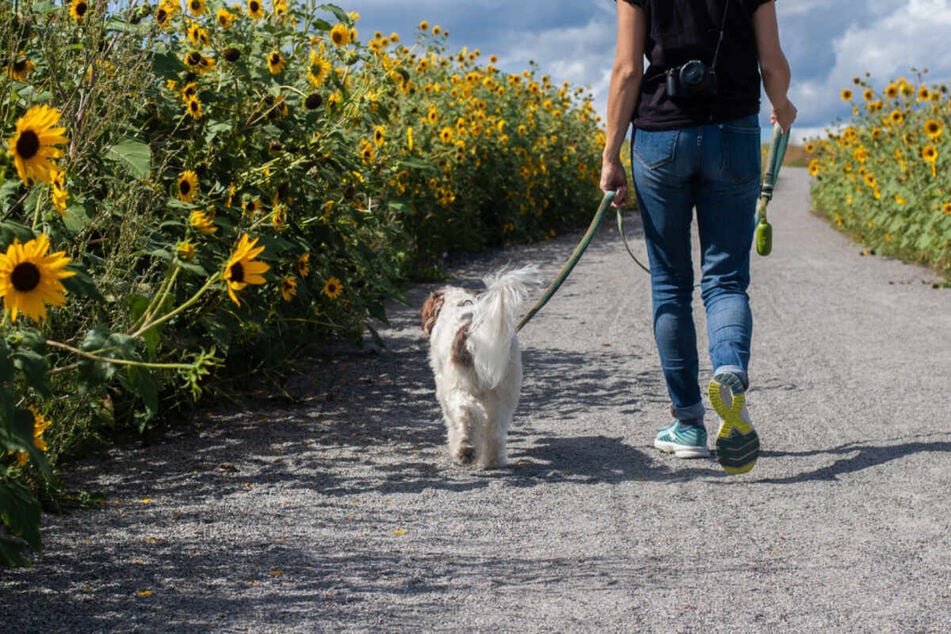
Before you start breaking up your dog's love affair with dirt and mud, you should first establish whether it is doing that because of a physical ailment. Observe it closely, is your dog limping, is there something wrong with its mouth, what's going on? If it seems like there is something physically wrong with your pooch, then you should be very careful in interrupting the dirt-dinner. Make sure to then immediately take it to the vet.
Meanwhile, if you think that your dog's habits are spurred on by a psychological issue, then you need to respond differently. Treat psychological issues with care, and try to keep your dog from eating soil compulsively, as it could develop an eating disorder.
Here are a few more measures to help stop your dog from eating dirt:
- Try to challenge your dog both physically and mentally, but don't overwork it.
- Create a fixed daily structure for your pet.
- Offer the dog alternative dirt patches to dig around in, steering it away from your grandma's roses.
- Make sure that your dog's walking route gets changed up from time to time. Keep it exciting!
If your dog is eating dirt for attention, then make sure that you're consistently ignoring the behavior. You don't want it to seem like you are rewarding this weirdness.
Hot tip: If your dog is chowing down on dirt and mud because you have recently changed its food, try reverting to the old food and slowly weening it off. Keep it gradual by first only mixing a small amount of the new food into its bowl, and then gradually increasing those proportions.
So what's up with my dog's dirt eating?
Remember, your dog is an animal. Trying to humanize its behavior isn't helpful here, as it will just seem absurd.
Whilst we don't fully understand why dog's choose to chow down on dirt and the like, we do know how to look after them. The key to all of these things is keeping regular veterinarian appointments and making sure that your dog is not consuming anything harmful.
Cover photo: 123RF / George230174

